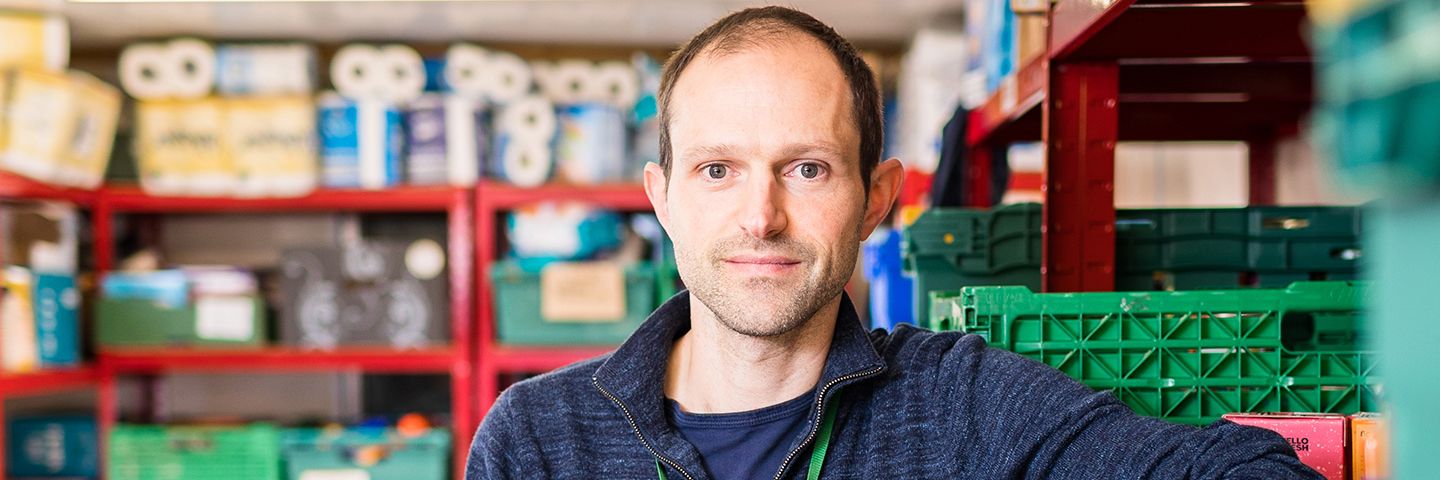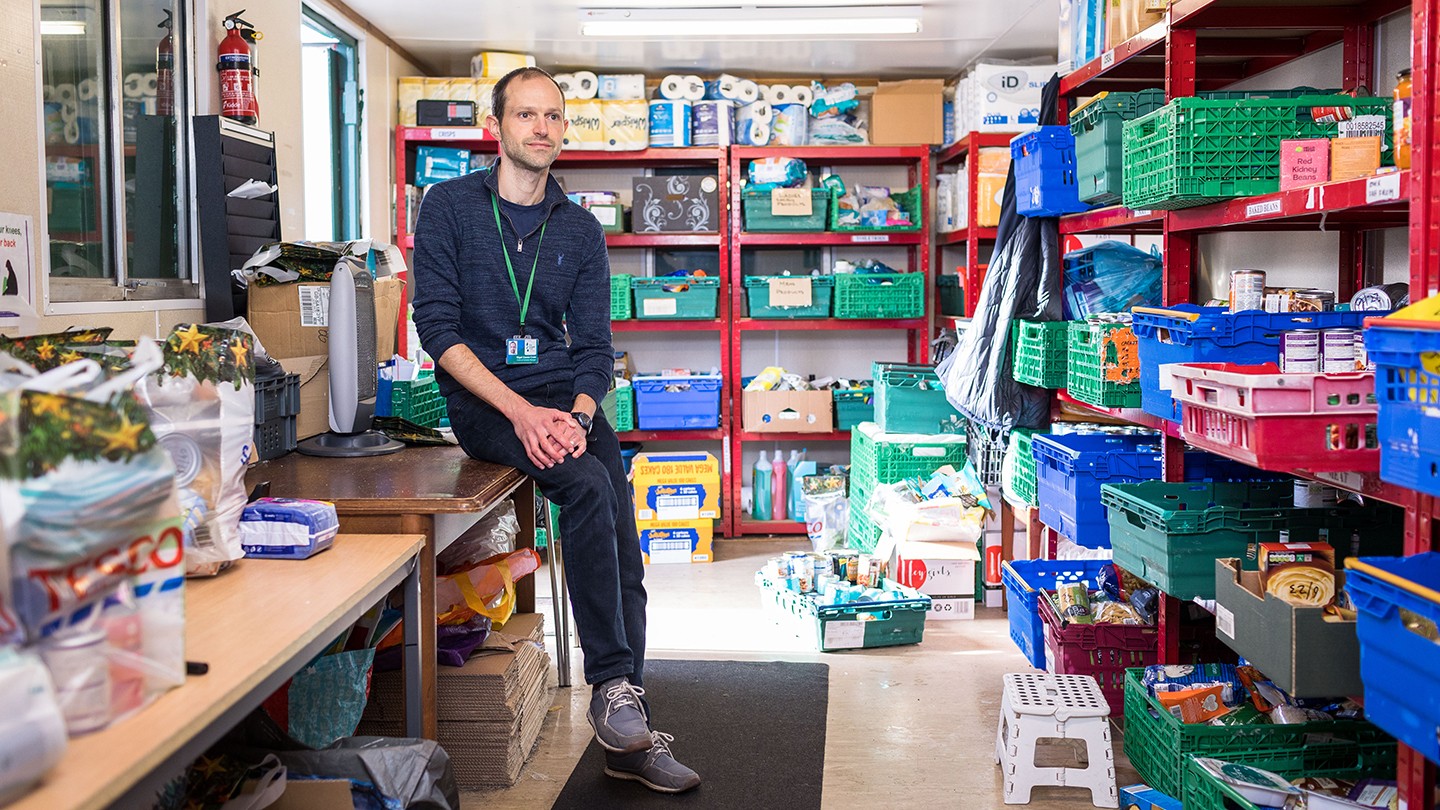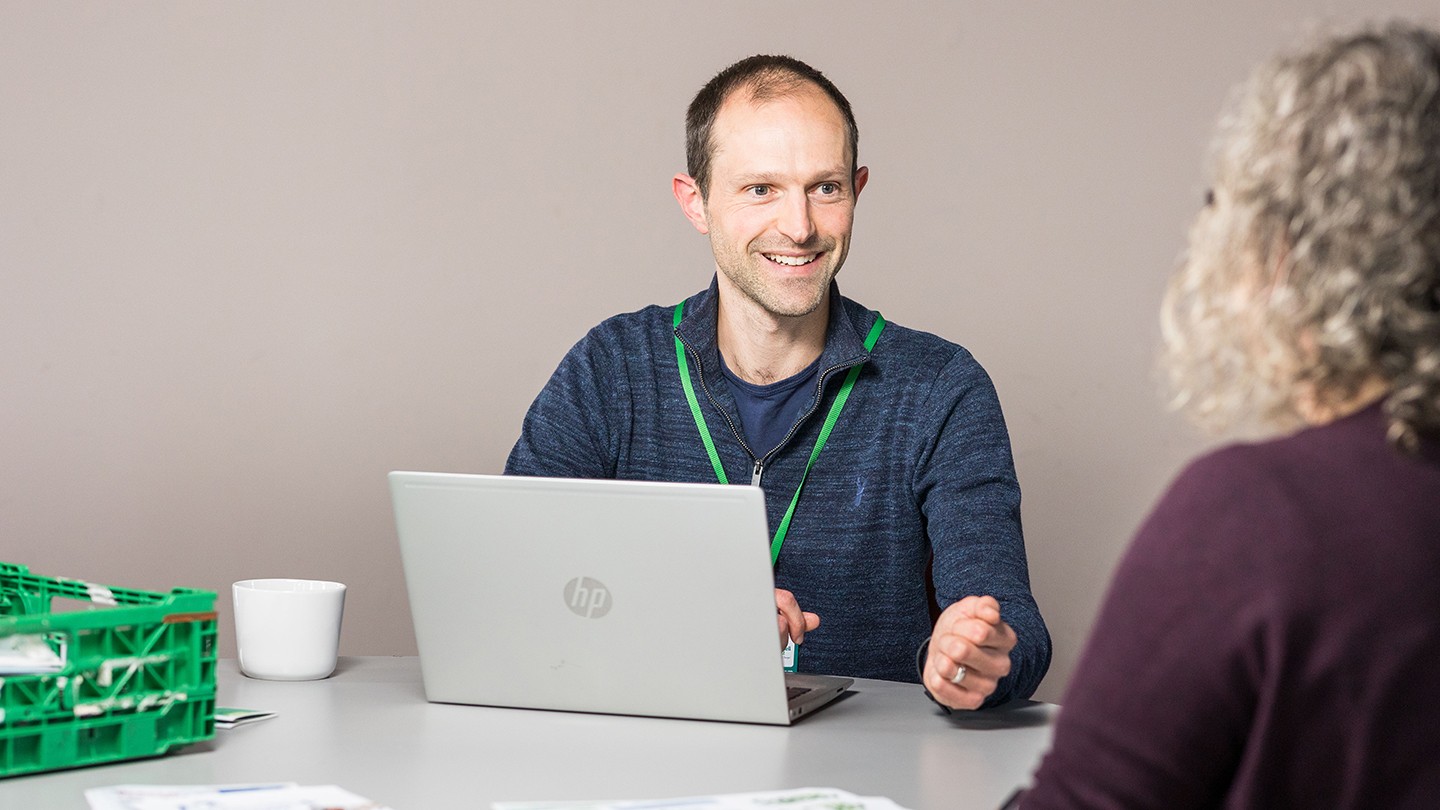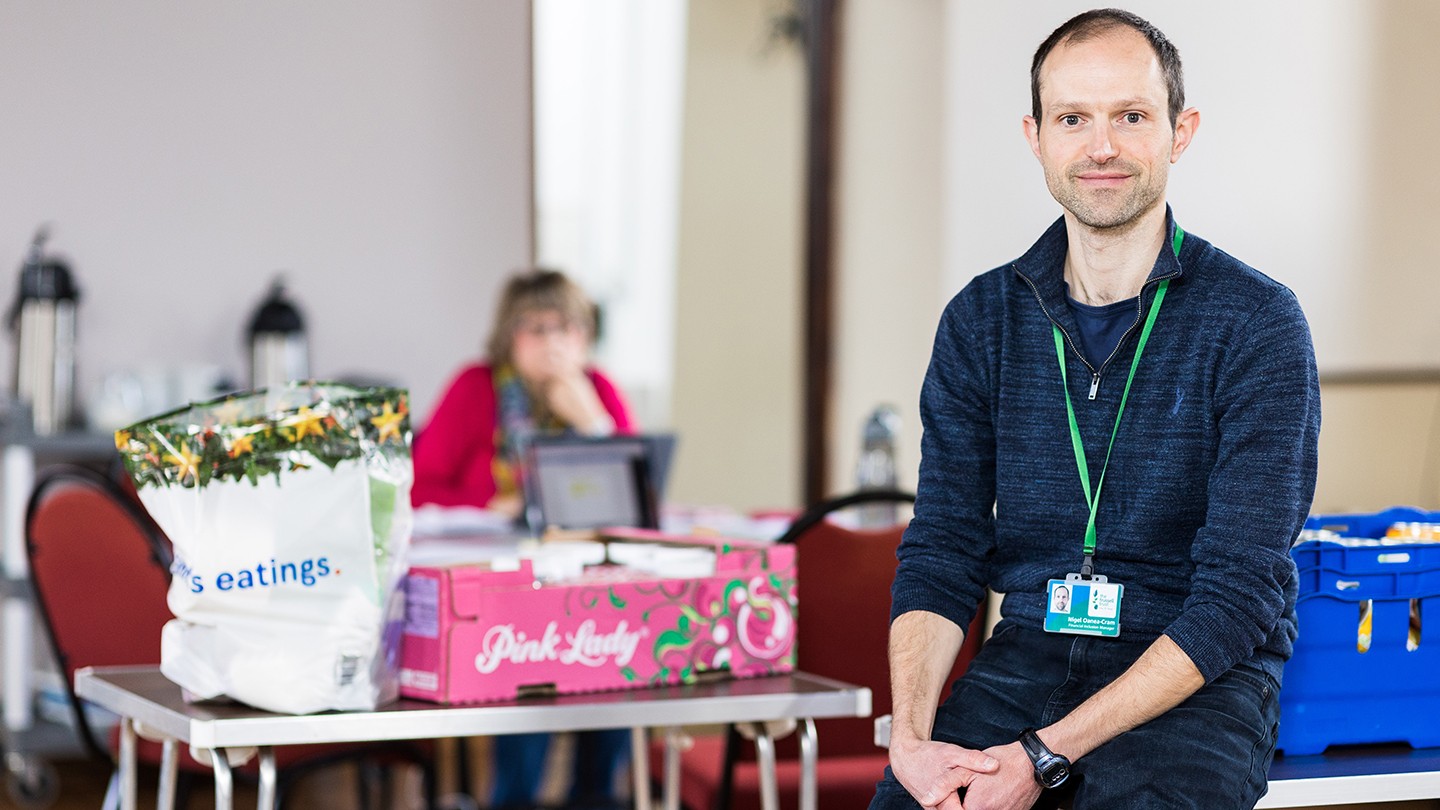
Launching Barclays' partnership with the Trussell Trust
02 November 2022
As the effects of the cost of living crisis are felt across the UK, Nigel Oanea-Cram of UK anti-poverty charity the Trussell Trust explains how a new three-year partnership with Barclays is helping local food banks to maximise the incomes of the people they support.
Every day, the Trussell Trust supports more than 1,300 food bank centres across the UK – which provide practical support for people who don’t have enough money for the things we all need in life. Its ambitious goal? To end the need for food banks altogether.
The aim is to tackle the challenges that face people using food banks at their source, explains the Trussell Trust’s Financial Inclusion Manager, Nigel Oanea-Cram, who is based in south Wales. “Food banks see individuals who are in crisis; the nature of their work is to serve that immediate need of making sure there’s food on the table. But this doesn't address the underlying causes of poverty for that individual, and that's where some of this additional provision like financial inclusion comes in."
The charity’s work has become even more critical this year, as the UK has seen its fastest cost of living increase in 40 years. Between August and September of this year, around nine in 10 adults in Great Britain reported an increase in their living costs.
By receiving advice and support, the individual can potentially maximise their income and get more money in their pocket.
To support people most impacted by the crisis, Barclays is launching a new partnership with the Trussell Trust. Its purpose is to build awareness of the help available to people facing financial difficulties, to increase access to the support they’re entitled to, to help them to maximise their incomes – and to empower food banks to help tackle the underlying causes of poverty for the benefit of their communities.
At the frontline are Financial Inclusion Managers like Oanea-Cram – some of whose salaries will be funded by the bank, to strengthen the charity’s support for people facing hardship.
“Financial inclusion, fundamentally, is about working to maximise the incomes of individuals and families,” he says. “It’s about ensuring that they receive all of the benefits they are entitled to, that they receive advice and that they get the financial support they need.”

The partnership with Barclays aims for 75% of the food banks in the Trussell Trust network to offer financial inclusion services by March 2025.
“Food banks are seeing a huge increase in need”
Having spent more than a decade working with people experiencing poverty, Oanea-Cram now collaborates with food banks across the Trussell Trust’s network to upskill their staff and develop financial inclusion provisions in their practices, to best support people facing financial hardship.
That need is urgent. Research from the Trussell Trust recently found that one in five people claiming Universal Credit were unable to cook hot food this summer because they couldn’t afford to use cookers. And, as energy prices have spiked, grocery costs have also increased. From January to September 2022, the price of food and non-alcoholic beverages rose by 14.6% – reaching the highest rate of inflation since April 1980.
“Food banks are seeing a huge increase in need,” says Oanea-Cram. “In Wales, from April to September, there was a significant increase in food bank parcels distributed compared to last year.”
Because food banks can vary significantly in size, reach and staff experience, financial inclusion support needs to be tailored to the needs of each community – but it can involve activities like bringing in advisors to provide guidance around subjects such as benefits or debt.
“By receiving advice and support, an individual can potentially maximise their income and get more money in their pocket,” adds Oanea-Cram, “which allows them to take back some of that dignity and choice and all of the things we take for granted.”

Oanea-Cram says financial inclusion “is about working to maximise the incomes of individuals and families.”
Preventing “impossible decisions”
Since April this year, the Trussell Trust has unlocked more than £2.3m for people through its financial inclusion activities.
One of Oanea-Cram's advisors helped someone who visited the food bank to successfully appeal a disability claim – which resulted in the individual being awarded £6,000 in backdated benefit, along with an ongoing £150 of weekly income. “Imagine the impact that will have,” he reflects. “Not only in terms of their financial wellbeing and resilience, but also in terms of their mental health – and hopefully their ability to feel more secure in their lives.”
At another site, around a third of individuals who received support had debt completely written off, totalling £147,000. “It's not about them renegotiating debt payments – it’s gone. They don't have to worry about that aspect of that debt anymore.”
Around 43% of food banks in the Trussell Trust network currently offer financial inclusion services, and the Barclays partnership has committed to increasing this figure to 75% by March 2025. Oanea-Cram is particularly looking forward to continuing to work alongside the bank to deliver support. He points to the breadth and scope of Barclays’ financial services knowledge: “There are all sorts of opportunities for Barclays to support us with training, development, information, awareness – whatever it may be.”
Food banks see individuals who are in crisis; the nature of their work is to serve that immediate need of making sure there’s food on the table. But this doesn't address the underlying causes of poverty for that individual
Financial Inclusion Manager, the Trussell Trust
All the work around financial inclusion impacts not just the people who receive support, but the communities they live in as well. “What happens to the money in that individual’s pocket?” Oanea-Cram says. “Well, chances are it gets spent locally, which benefits the local economy, which benefits local jobs, benefits mental wellbeing, impacts health, education, families and children in poverty.”
And, as the Trussell Trust collects data around the need for this support and the effect it has, it also uses this information to “change minds locally and influence stakeholders”.
While support in the form of donations is “hugely beneficial”, he adds, the potential impact of the partnership extends beyond funds – with the organisations combining their expertise to work towards preventing people from ever needing a food bank in the future.
“We recognise that many people in our communities will be experiencing greater hardship due to the cost of living pressures, and this has been key to the design of the partnership,” adds Kirstie Mackey OBE, Barclays’ Head of Citizenship for UK and Europe.
“Through raising awareness of the partnership, we will ensure that people who contact or visit the Trussell Trust can access all of the help and advice needed – unlocking and maximising all the income they are entitled to but may not be receiving, ensuring everyone has enough money for life’s essentials and reducing the need for food banks.”
As he looks ahead to what lies in store for the partnership, Oanea-Cram says he’s “really excited” to see how tackling the problem at its root can have an impact.
“It’s about avoiding people having to decide to skip meals so they can feed their children,” he says. “It’s those impossible decisions that we're trying to alleviate.”
Barclays and the Trussell Trust
To support people on the lowest incomes and most impacted by the ongoing cost of living crisis, Barclays’ three-year partnership with the Trussell Trust aims to:
- Build awareness of the help available to people facing financial hardship
- Increase access to the support that people who are most impacted are entitled to
- Empower food banks to tackle the underlying causes of poverty in the area they serve

Oanea-Cram says he hopes the partnership will help to end the need for food banks in the future.